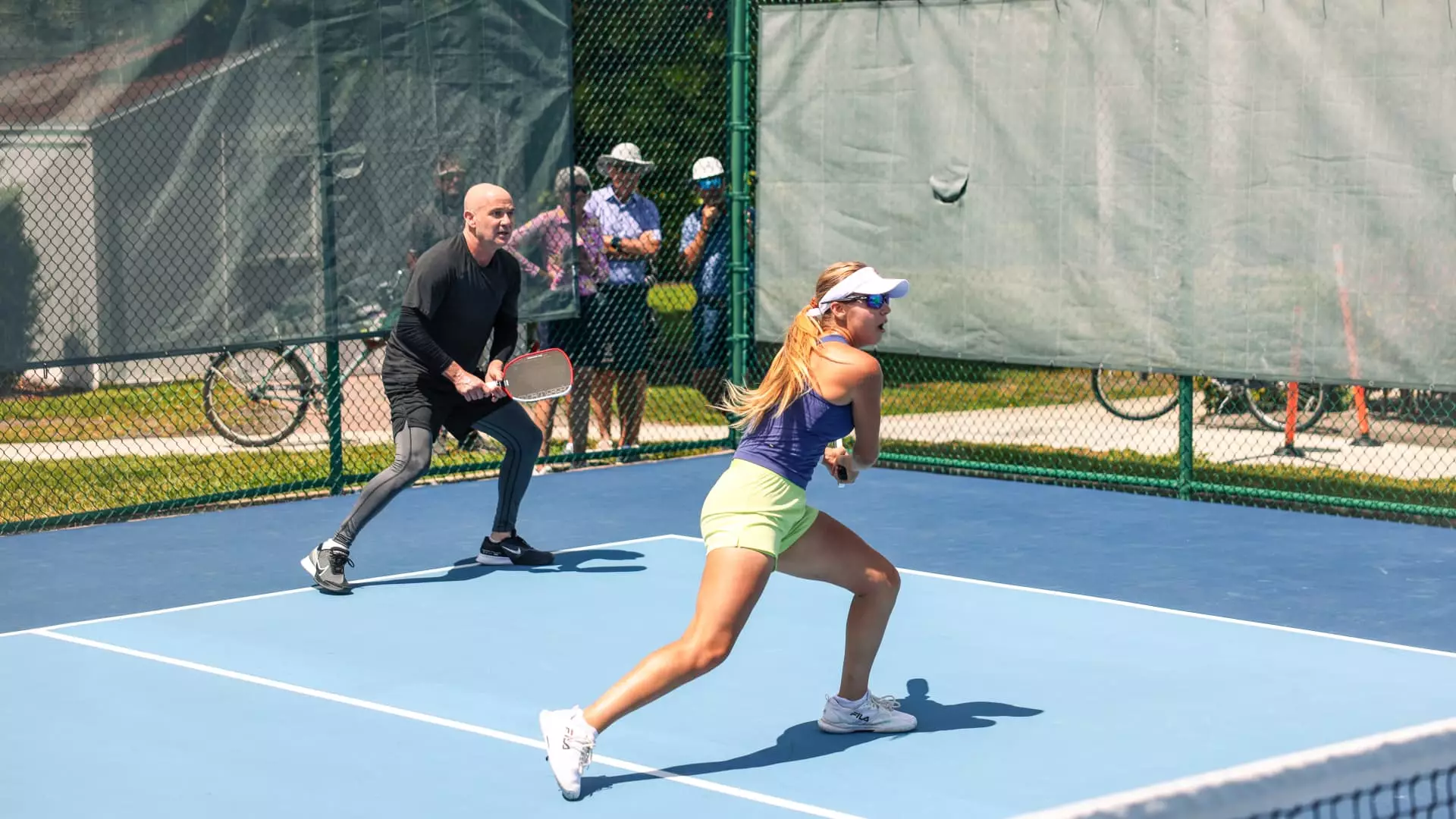Andre Agassi, a titan of tennis with numerous accolades under his belt, has ventured into the realm of pickleball—a sport that has been experiencing explosive growth in popularity. The decision to join the pro pickleball ranks is not just a personal pursuit for Agassi; it signifies a monumental shift in the landscape of sports as we observe the burgeoning realm of pickleball, particularly in the wake of the pandemic’s disruption. It’s a decision that echoes with both excitement and skepticism, as it raises questions about the longevity and future of traditional sports in comparison to emerging ones like pickleball.
This move is semi-expected considering the deeper cultural shifts we are witnessing in our society. The competitive landscape of sports is evolving, and Agassi’s pivot not only aligns with personal enjoyment but serves as a signpost for where the future of competitive recreation might be heading. He revealed that he would partner with 18-year-old sensation Anna Leigh Waters at the U.S. Open Pickleball Championships in Naples, Florida—an intriguing collaboration that puts a legendary figure alongside youthful exuberance. Will Agassi’s presence elevate the sport further or is it merely a celebrity endorsement that will fade as he steps out of the limelight?
The Power of Celebrity in Popularizing New Sports
One cannot ignore the powerful role celebrity plays in shaping the interests of the masses. Agassi’s participation might just opportunistically align with the sport’s trending status more than any genuine commitment to revolutionize pickleball. However, this collaboration also highlights the pressing need for a figure like Agassi, who possesses longstanding credibility, to propel the sport’s visibility. By pairing with Waters, Agassi captures the attention not only of pickleball enthusiasts but also of tennis fans and casual observers alike.
What makes pickleball particularly appealing is its inclusiveness and accessibility. With Agassi’s strong advocacy for community and sport-making, he appears to resonate deeply with Waters’s ambitious vision for the sport. This dual motivation could very well lead to exciting shifts in pickleball’s infrastructure and management while simultaneously attracting a new wave of players eager to embrace the game. But is it an authentic passion for the sport or intention merely to cash in on its marketability?
Financial Dynamics: A Shift in Earnings Landscape
Statistics reveal pickleball players are now earning more than those in traditional women’s sports leagues, implying a crucial change in how we view sports economics. The figure is staggering—Over $3 million reported for Waters in the past year alone! One must wonder whether pickleball’s emergence means the fading relevance of established sports or if it serves to supplement them. As sponsorship deals multiply and media exposure burgeons, Agassi’s presence could further skyrocket the financial possibilities within this sport.
In contrast, this drives home a salient point: Are traditional sports, particularly tennis, at risk of being overshadowed? Agassi’s foray into pickleball raises valid concerns regarding shifts in audiences and market investments. Potential overemphasis on novelty might culminate in diminishing support for time-honored sports. The balance between tradition and modernity must be maintained, especially given Agassi’s storied history—a history now potentially subsumed under evolving public interests.
The Future of Sports: A Delicate Balance
As Agassi gears up for his debut with Waters, his ambition to help grow the sport seems commendable, but skepticism lurks in the background. While his involvement resonates with his life-long commitment to foster sportsmanship, it may not be enough to curtail the overwhelming tide driven by novel hobbies and social experiences. There lies a risk that sports might pigeonhole themselves into fleeting trends, leaving longstanding traditions behind.
Agassi’s reluctance to transition fully into professional pickleball hints at an underlying conflict—not complete devotion but rather a desire to bask in the casual enjoyment of a burgeoning sport while retaining the right to his legacy. As he noted, the “luxury of bandwidth” to intertwine passion and commitment isn’t quite available. This reflects a larger tension present in sports today: an intersection of commercialization and authenticity. In a world where the lines between entertainment, celebrity, and sports have become increasingly blurred, the future of athletic engagement remains as captivating as ever, filled with both vibrant prospects and palpable uncertainties.

